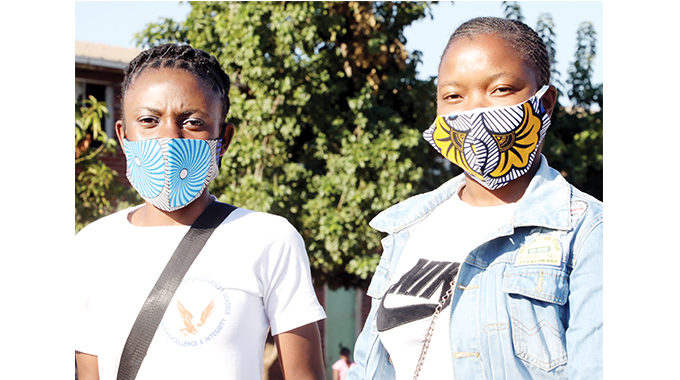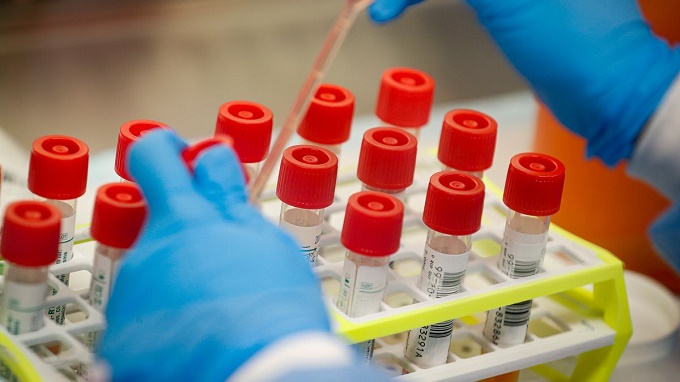Covid-19 dis-empowers women, girls

Andile Tshuma
The effects of Covid-19 on women are multi-faceted. Every day, people are experiencing first-hand how Covid-19 impacts our lives. The ability to leave home, work, go to school, or access public services has become such a privilege, and a great risk at the same time.
Seeing family and friends is not on the options list for many people as we are on lockdown and it is just too risky anyway.
People have lost jobs, some have found opportunities right in the middle of this crisis, and yet, these impacts are not the same for everyone.
As Covid-19 spreads across the globe, the disease is projected to take an immense human toll on Sub-Saharan Africa, leaving many out of work, especially those in informal employment.
The effects of Covid-19 in the lives of women in Bulawayo are out there in the open for all to see.
Many women in the city are in informal employment and many of them need to be mobile for their businesses to function. Due to measures implemented to curb the spread of lockdown, most women are currently out of work. Spare a thought for our cross-border mothers.
Flea market stall owners and fresh produce vendors who were in the Central Business District have fallen on hard times due to Covid-19.
While there are opportunities even now during the pandemic, it is not the best time for people to re-strategise and venture into new businesses. So many women have fallen hard. But families still need to be fed.
For women who are used to bringing something to the table and not waiting on another person for provision, it is much more difficult to adapt to the Covid-19 situation.
For women in formal employment, it has not been easy too. Some women have been laid off as their employers are not productive and cannot afford to keep them. It’s sad. Some are on indefinite leave and on half-pay while others are earning nothing at all.
Some have had to quit their jobs after day care centres closed and there is no one to take care of their children while they go to work. Family and friends may be very far from them. These are tough times.
Despite all this, bills still need to be paid, food must be bought, children must eat.
The World Bank projects that the immediate economic consequences of the pandemic for African economies will be severe, resulting in the first regional recession in nearly 25 years and pushing an estimated 23 million more people into extreme poverty, with women and girls being the most vulnerable in this crisis.
This could result in girls and young women facing severe economic shocks being more likely to take on high-risk work for their economic survival.
Responses to the outbreak must therefore protect and support young women’s economic empowerment.
Pre-existing gender gaps may intensify the adverse effects of Covid-19.
In fact, there is a high risk that gender inequalities will widen during and after the pandemic and that gains in women’s and girls’ accumulation of human capital, economic empowerment, voice and agency, painstakingly built over the past decades, will be reversed. Many of the service sector jobs that are hit hard by the current crisis are disproportionately female.
Think about receptionists, housekeepers, flight attendants, restaurant service staff, hairdressers, domestic workers and vendors too.
Due to loss of incomes, women are also at risk of psychological distress at times of crisis as well as increased risk of violence, abuse, exploitation and neglect.
Essential ongoing support and case management for vulnerable and at-risk women and children may be blocked by social distancing measures and other lockdown regulations.
Sometimes all that is needed is a hug from someone that cares, but with laws on social distancing and the need to reduce the spread of the virus, that comforting act is now impermissible as one risks contracting or spreading the virus.
Women, especially those from marginalised communities and with disabilities, may be particularly affected by the secondary impacts of the outbreak.
Lockdown measures imposed as a response to the Covid-19 pandemic are putting women at heightened risk of violence in the home and cutting them off from essential protection services and social networks.
Sexual and reproductive health and rights must not be de-prioritised by governments. They are essential life-saving services which need to be part of the critical response to this crisis.
However, with joblessness, women cannot manage their health, especially reproductive health well.
Due to the soaring cost of sanitary wear, women cannot manage their menstrual health with dignity anymore.
How does one buy a pack of sanitary pads when children are starving? It means many women are resorting to unconventional methods of managing their menstrual hygiene.
They have to use pieces of cloth, and there is a water crisis, those materials must be washed. They walk long distances to fetch water.
Women have lost their source of livelihood. Hundreds of women have had to return from their economic bases outside the country, where on return they have been subjected to a minimum of eight days at quarantine centres.
They have been disempowered because most of them returned with nothing, especially those that were deported from Botswana. They did not bring much of their belongings and cannot work. They cannot even afford to buy simple sanitary pads.
There is also the unequal distribution of care work between men and women within households.
Should a family member fall on hard times and catch the virus, it is most likely that a woman will have to be the caregiver, due to existing gender roles in society and this puts the female figure in the home at higher risk of contracting the virus.
Men and women have not been impacted by the pandemic in the same way. They are equally vulnerable in their unique ways, therefore responses to the pandemic must not be genderblind. – @andile_tshuma










Comments